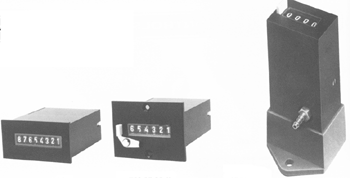Oil and Pneumatic Systems
Pneumatic timers allow for air signals to be controlled as they go in and out of your air component. Primarily, pneumatic timers delay air signals (usually from 0.5 to 60 seconds). When the systems run properly, they do a great job, but there are things that can slow them down or make them unusable. One of the biggest issues when dealing with pneumatic times is preventing aerosol oil from getting inside the unit. The oil that is used to keep the pneumatic system's compressor lubricated can seep into the rest of the system. This could make the system run sluggishly or make it break down completely.
The compressor of a pneumatic system gets hot and this turns the oil into a vapor. After some time, the vapor will cool, and you will be left with aerosols (measured at roughly a micron in diameter). An aerosol is considered a mist of tiny, fine particles. When talking about it, it might not seem so big, but these particles can completely shut a system down. The aerosol collects in large quantities of particles. In one month, roughly 150 ml of oil can collect in a system. This is based off a study done where airflow was at a current of 100 ft. per minute. The air also contained one part-per million of oil. As the oil builds up, your system works less and less. Normally, oil doesn't hurt your system instantly, but instead it takes a time to do its damage.
A common problem that results from oil build up is a change of a system's tolerances. Another common problem people encounter is a swelling of seals. Oils can be responsible for this swelling. Not only can oil affect the system, but also it can also change the results of a finished product. For instance, when blow-molding, oil will cause imperfections to be made when air applying coats and finishes.
There is an option to buy filters that will help to mitigate oil in the system (this works both by keeping oil out and removing oil that gets in). Some filters are not created with the purpose of collecting oil. Sometimes these are okay, but when working with oils you will want to avoid them. Make sure you talk to a professional in the field: someone who can guide you through your different filter options. Don't let oil get the best of you and your system.
Pneumatic Controls
- Pneumatic Controls for Commercial
From agriculture to manufacturing to pharmaceutical or other research projects to whatever you need in the way of pneumatic controls, as well as one or more of our leading pneumatic controls system products, you’ve just discovered your one-stop shopping headquarters.
- Top Quality Pneumatic Controls System
- Brief history of Pneumatics: From Blowguns to Pneumatic Valves & Pneumatic Controls


- Ellis/Kuhnke Controls
132 Lewis Street Unit A-2, Eatontown, N.J. 07724
Phone: 1-800-221-0714
Fax: 732-291-8154
Email: Info@ekci.com
- Home Pneumatic Controls Technical Info CAD Drawings Contact Us Pneumatic Timers Blog Site Map
